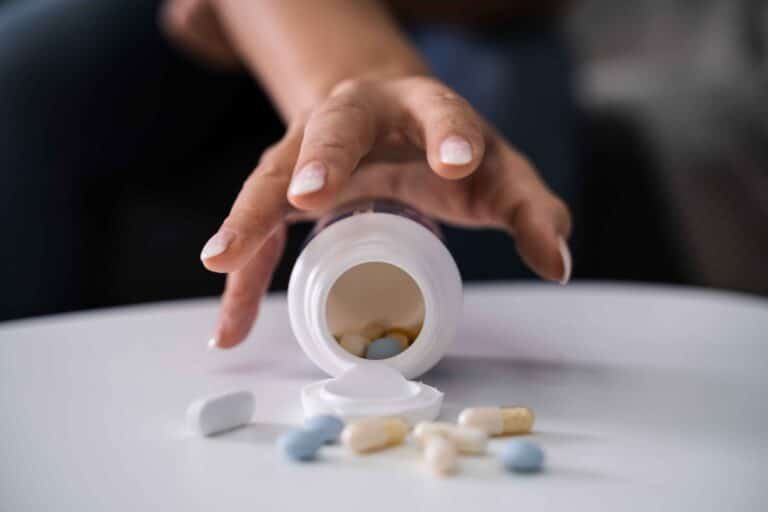Ibogaine is drawing attention for the way it helps people break free from addiction and find balance in their mental health. What sets it apart from more familiar treatments is how deeply it works on both the mind and emotions and often addresses the underlying causes of dependency and trauma rather than just the surface symptoms. In this blog, we will take a closer look at why ibogaine is becoming a more common option for people who are looking for lasting recovery.
How Does Ibogaine Treatment Work?
Ibogaine treatment is designed to interrupt the cycle of addiction and help provide long-lasting healing. It works by targeting the neurological pathways that influence behavior, cravings, and emotional regulation. When you use it under clinical supervision, ibogaine induces a dream-like state that helps you confront and process unresolved emotions and trauma. This internal experience, paired with ibogaine’s effect on the neurotransmitters, offers you a reset for the brain and body. Its therapeutic potential extends beyond addiction and includes anxiety, depression, PTSD, and even brain injuries.
Addiction
Ibogaine has gained recognition mainly for the way it helps people struggling with substance use disorders. Instead of just dulling cravings, it works directly on the brain’s reward system, interrupting the cycle of compulsive use and easing withdrawal. Some people have described the experience as hitting a “reset button,” where the urge to use fades and space opens up for real healing, though that isn’t the case for everyone.
Anxiety & Depression
For people living with anxiety or depression, ibogaine offers a different kind of support. By affecting serotonin and dopamine, the brain’s main mood regulators, it can help restore balance where stress or despair has taken hold. Many who’ve gone through treatment talk about gaining a new perspective, or a sense of clarity, that therapy alone hadn’t given them. It’s not a quick fix, but it can open the door to lasting change.
Brain Injuries
Recovering from a brain injury often goes far beyond physical healing; TBIs affect mood, focus, and how you process emotions. Ibogaine may play a role here by supporting neuroplasticity, the brain’s ability to form new connections and repair old ones. This can improve mental clarity and emotional resilience over time. For some, the treatment also brings buried feelings related to the injury to the surface, giving them a chance to process and release what they’ve been carrying. While ibogaine isn’t meant to replace medical treatment, it can work alongside it to help you regain a stronger sense of balance and control.
PTSD
Ibogaine therapy offers a powerful path forward for those living with post-traumatic stress disorder. It can help bring unresolved trauma to the surface in a way that allows you to confront and process the experiences without becoming overwhelmed. Ibogaine’s interaction with the brain fosters emotional insight, often helping you make peace with events that have caused long-term distress. By resetting neural pathways associated with fear and hypervigilance, it creates space for emotional regulation and improved mental stability.
How Ibogaine Interacts With The Brain
Ibogaine interacts with multiple systems in the brain that influence mood, behavior, and addiction.
Dopaminergic System
Ibogaine helps regulate dopamine, the neurotransmitter responsible for pleasure, motivation, and reward. This helps reduce the intense cravings and compulsive behaviors associated with substance abuse.
Serotonergic System
By increasing serotonin availability and receptor sensitivity, ibogaine improves emotional regulation and contributes to feelings of well-being. This action plays a key role in addressing depression and anxiety symptoms.
Opioid Receptor Activity
Ibogaine acts on opioid receptors without creating dependency. This helps to lower your withdrawal symptoms and cravings in individuals addicted to opioids while supporting natural regulation of pain and stress responses.
Sigma Receptor Binding
Ibogaine’s interaction with sigma receptors is linked to its antidepressant and neuroprotective effects. This mechanism contributes to emotional clarity and improved stress resilience during and after your treatment.
Is Ibogaine Treatment Right for You?
Ibogaine may be a good option if you are dealing with addiction, unresolved trauma, or emotional struggles that haven’t improved with traditional treatment. For people with a history of substance use, it can feel like a reset, helping both the body and mind step out of the cycle of dependency and begin recovery from a steadier place. It has also shown promise for some living with anxiety, depression, PTSD, or the lingering emotional effects of a brain injury, as it can bring buried pain to the surface and help you work through it.
That said, ibogaine is not right for everyone. People with certain heart conditions or specific mental health concerns may not be able to use it safely. That’s why a thorough medical and psychological evaluation should always be done first, to make sure the treatment is safe and the right fit for you.
Key Takeaways
Ibogaine works by targeting the core neurological and emotional processes that drive addiction and mental health challenges. Its ability to interact with several systems in the brain makes it a unique and powerful treatment option for those seeking more than symptom management. If you are ready to take a deeper approach to healing, ibogaine therapy may be the right next step for you. Contact Experience Ibogaine to learn more about our programs and our services.
Frequently Asked Questions (FAQs)
Yes, ibogaine influences dopamine levels by regulating the dopaminergic system, which plays a big role in the brain’s reward and motivation circuits. It helps reset dopamine pathways that have been disrupted by substance abuse, reducing your cravings and compulsive behavior. Unlike other addictive substances that flood the brain with dopamine, ibogaine supports a more balanced, natural restoration of dopamine activity.
Ibogaine does not work for everyone, and its effectiveness depends on a range of individual factors, including medical history, mental health conditions, and the type of substance dependency. Some people experience profound emotional breakthroughs and long-term relief, while others may need additional therapies or multiple treatments.
Yes, ibogaine has shown promise for people trying to overcome alcohol dependence. By resetting the brain’s chemistry and interrupting the emotional patterns that fuel drinking, it can ease both cravings and withdrawal symptoms. For some, the experience also brings new clarity around the underlying reasons for their drinking.
Ibogaine is usually cleared from the bloodstream within about 24 to 36 hours. Its metabolite, noribogaine, stays much longer, often several weeks to a few months, and is believed to play a role in the ongoing benefits people feel after treatment.




